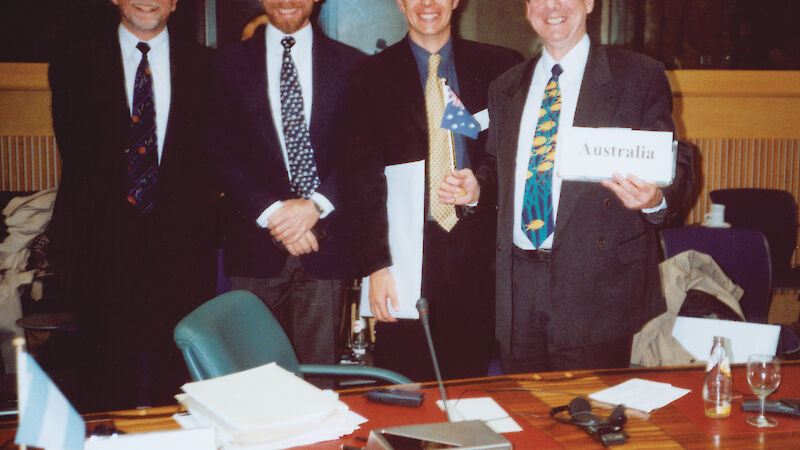Parties to the Antarctic Treaty are expected to meet in Russia in July 2001. High on the agenda will be a range of environmental protection issues, including the outstanding issue of liability for environmental damage.
The 2001 meeting will be the 24th Antarctic Treaty Consultative Meeting (ATCM XXIV) and will incorporate the 4th meeting of the Committee for Environmental Protection (CEP). The previous full ATCM was held in Peru in 1999, and in 2000 a truncated meeting, comprising mainly a meeting of the CEP, was held in The Hague. This year’s meeting, to be held in St Petersburg from 9 to 20 July, will continue the work done over the previous two years.
The CEP, which was established by the Protocol on Environmental Protection to the Antarctic Treaty, held its first meeting in 1998 following the entry into force of the Protocol. It’s agenda includes matters relating to environmental impact assessment, conservation of Antarctic flora and fauna, waste management, prevention of marine pollution and development of the Antarctic protected area system. The work of the CEP is further described in the story on page 47.
The Parties will also continue negotiations undertaken in Lima on developing rules and procedures relating to liability for environmental damage. This requirement stems from Article 16 of the Protocol which envisages the development of one or more annexes to address this important issue. Discussion of the liability rules commenced in 1993, but the complexity of the issue and the differences of view has led to slow progress.
The Antarctic Treaty parties have put in place many effective measures to protect the Antarctic environment. What would happen if, despite their best efforts, there was an environmental disaster? Fortunately, Antarctica has never seen a maritime accident of the scale of the 1989 Exxon Valdez incident in the Arctic, but that does not mean that the Parties are complacent. If someone makes a mess in Antarctica, Parties want it cleaned up and, if it is not, they want rules for deciding who pays and how much. So, on the surface the requirement is straightforward.
In reality it is very much more complex. Experience gained in other international liability agreements shows us that it will not be easy. And in Antarctica the issues are more complex given the jurisdictional situation, the extreme remoteness, the climate which could make clean-up impossible, and the requirement for consensus decision-making in Treaty meetings.
A major sticking point is the question of what the regime should cover. Some Parties favour the so-called comprehensive approach which would cover all circumstances, whereas others prefer to start with a more limited regime — such as one which would provide only for liability for failure to take response action in emergencies.
The 2000 meeting in The Netherlands included an informal exchange of views on the issues and it is expected that the next Treaty meeting will continue the formal negotiations. This will include consideration of a personal proposal from the New Zealand chairman of the discussions who has proposed a framework for development of the liability regime. The proposal provides a structure for a regime which would ultimately be comprehensive in coverage, but which can be developed in stages according to priorities, such as the concern to address responsibility for response action in emergencies. This model is potentially attractive to a number of Parties.
Importantly, the Parties also agreed that COMNAP and SCAR should be asked to provide more technical and scientific input to the discussions so that the outcome of the debate is confident of practical application.
In pursuing its Antarctic policy and legal interests, Australia is pushing hard within the Treaty framework to find creative solutions to this problem so that the outstanding commitment made in the Protocol is finalised. The AAD believes that this is critical to the effectiveness of the Protocol — ultimately the liability rules must provide a strong incentive for operators in the Antarctic to meet their environmental obligations and, if something does go wrong, to ensure that any damage is made good.
Andrew Jackson
Antarctic Treaty and Government Section Manager,
Australian Antarctic Division

